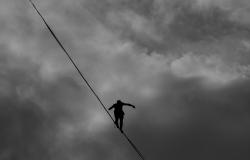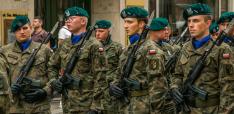The Global South’s Balancing act on Russia

Rodrigo Fracalossi de Moraes explores why middle and regional powers are playing a delicate balancing act on Russia.
Emerging, middle or regional powers in the Global South have been displaying ambiguous, contradictory, confusing, or timid stances on Russia’s invasion of Ukraine. While they stress the importance of the norms of sovereignty, territorial integrity, and international law, they also seem to tolerate Russia’s systematic violation of these norms in its so-called ‘near abroad’.
China neither endorsed nor condemned Russia’s invasion of Ukraine, opting instead for vague statements about solving the issue peacefully and the importance of territorial integrity. India adopted a similar stance, not condemning the Russian invasion and emphasising the ‘legitimate security interests’ of both sides. Both China and India abstained from voting on the UNGA resolutions of March 2nd, 2022 and March 24th, 2022 that condemned the invasion. They also abstained from voting on the draft UNSC resolution of February 25th, 2022 that would end Russia’s invasion.
While much attention is given to China’s and India’s positions, there is a broader pattern of similar positions in the Global South. Brazilian president Jair Bolsonaro met with Putin a few days before the invasion, affirming his ‘solidarity with Russia’. Brazil later voted in favour of the UNGA resolutions that condemned the invasion, but Bolsonaro said that Brazil would remain neutral concerning the conflict. Others in Latin America were ambiguous or timid towards Russia: Mexico and Argentina asked for the cessation of hostilities, but these were weak reactions if one considers the scale of the invasion. South Africa asked for the removal of Russian troops from Ukraine, but did not condemn the invasion vehemently. Alongside half of African countries, South Africa did not vote in favour of the UNGA resolutions condemning Russia. Saudi Arabia, the United Arab Emirates, Egypt and others in the Middle East and North Africa are also playing a balancing act on the conflict. Among the developing countries in the G20, only Turkey vehemently condemned Russia’s aggression, though even in this case the Turkish government is reluctant to join the West in imposing sanctions on Russia. Kenya was one of the few that explicitly condemned Russia, but its position was not followed by many others.
As much of the Global South has historically put great emphasis on the importance of sovereignty and territorial integrity, why do not they condemn more clearly and vehemently Russia’s aggression (as done by Kenya, for example)? Given their own experiences of colonialism or interference from foreign powers in their domestic issues, why do they tolerate a situation in which Russia denies the right of Ukraine to keep its territorial integrity and even exist as a sovereign nation? India, China, Brazil, African countries and many others have a long history of condemning colonialism, neo-colonialism, and foreign powers’ interference in other countries. What is different now?
The reasons are of course complex and dependent on regional and national dynamics in Asia, Africa, and Latin America, but at least three factors probably play a role, leading great part of the Global South to sit on the fence regarding Russia’s aggression:
First, Russia is not considered a threat in most of the Global South. Actually, developed Western countries may be considered a greater threat due to a history of colonial oppression or foreign interference in other countries’ domestic affairs. Governments of countries in the Global South may also emphasise the double standards of the developed West, drawing attention to how much Russia was ‘provoked’ by NATO, to failed European- or US-led military interventions in the recent past, and to the strong resistance of governments in the West to hosting refugees from the Middle East and Africa in recent years. Therefore, as they do not perceive Russia as a threat, and may consider the West at least in part responsible for the conflict in Ukraine, why should Global South countries spend scarce resources getting involved in a conflict that is not ‘theirs’ and that, in addition, involves countries that may have oppressed them in the past or with which they do not share a strong identity?
Second, Russia has strong ties in much of the Global South. Russia is India’s largest supplier of weapons. Relations with China have improved since Russia’s annexation of Crimea, with signs that Russia and China have developed a pragmatic strategic partnership, facilitated by Putin’s and Xi’s interest in preventing ‘colour revolutions’ at home. In Latin America, Putin has courted or openly supported the leaders of Brazil, Argentina, Cuba, Venezuela and Nicaragua. Russian vaccines against Covid-19 played an important role in the fight against the pandemic in parts of Latin America: Argentina, for example, was the first country outside the former Soviet Union to authorize its use. In Africa, there is a long history of Russian military cooperation, part of which dates from the Soviet period, and that has been expanded since 2014. Russia also shares energy interests with many countries in the Global South, making them unwilling to confront Russia. Some ties in the Global South were cultivated through international institutions that excluded developed Western countries, especially the BRICS, the Shanghai Cooperation Organisation, and the Eurasian Economic Union.
Third, the notion of ‘spheres of influence’ is a major component of other emerging powers’ foreign policies. Although regularly reaffirming their respect for sovereignty, India and China have a hierarchical conception of their regions, pursuing the establishment of an order in which they should sit at the top. Russia’s invasion of Ukraine may in this way work as a testing ground, indicating what might happen if, for example, China keeps expanding in the South China Sea or seeks to introduce major changes into the international order. Moreover, the Russian invasion may put China’s increasing power in its region and elsewhere into perspective. Depending on China’s behaviour over the next years, the Chinese government could contrast its own policies to Russia’s, reinforcing China’s discourse of a ‘peaceful rising’.
Besides these factors, governments in the Global South may simply fear potential retaliation from Russia in the form of sanctions or interference in their domestic political affairs. India, for example, does not want to anger Russia in a context of serious perceived security threats from its neighbours, made worse by China-India skirmishes over the last two years. Yet, the same countries in the Global South that now display ambiguity on Russia’s invasion of Ukraine have historically opposed interventionist policies from the United States and Western European countries, including a vehement opposition of the US invasion of Iraq in 2003. Military or economic power are therefore not the only factor being considered.
Overall, emerging, middle or regional powers are playing a delicate balancing act on Russia. Although they have incentives to condemn the violation of Ukraine’s sovereignty and territorial integrity, they have little incentive to confront Russia more vehemently. They seem to weigh the defence of core norms of the international society (sovereignty, international integrity, international law and others) against their perceived interests in relation to Russia, Europe, the United States and others. Such balancing act may lead to contradictory or confusing policies, with governments stressing the importance of the norms of sovereignty and territorial integrity while at the same time defending ‘legitimate security interests’ of actors that violate these same norms.
The Global South may nonetheless be an important battleground for the formation of a global coalition not only to stop the war but also to sustain the norms of sovereignty and international law over the long-term. Previous cases of widespread sanctions, like those imposed on South Africa’s apartheid regime, indicate the importance of isolating an aggressor or oppressor in various spheres. This requires the involvement of governments, civil society activists, and international organisations from multiple areas and regions.
Rodrigo Fracalossi de Moraes is a researcher at the Institute for Applied Economic Research (Ipea), Rio de Janeiro. He has a DPhil in International Relations from the University of Oxford and taught at the University of Oxford’s Diplomatic Studies Programme. He has published primarily on international security, transnational activism, public policies, and the Global South, with articles appearing at Foreign Policy Analysis, British Journal of Politics and International Relations, Journal of Global Security Studies, Global Policy, Global Responsibility to Protect, among others. @rodfracalossi
Photo by Marcelo Moreira


